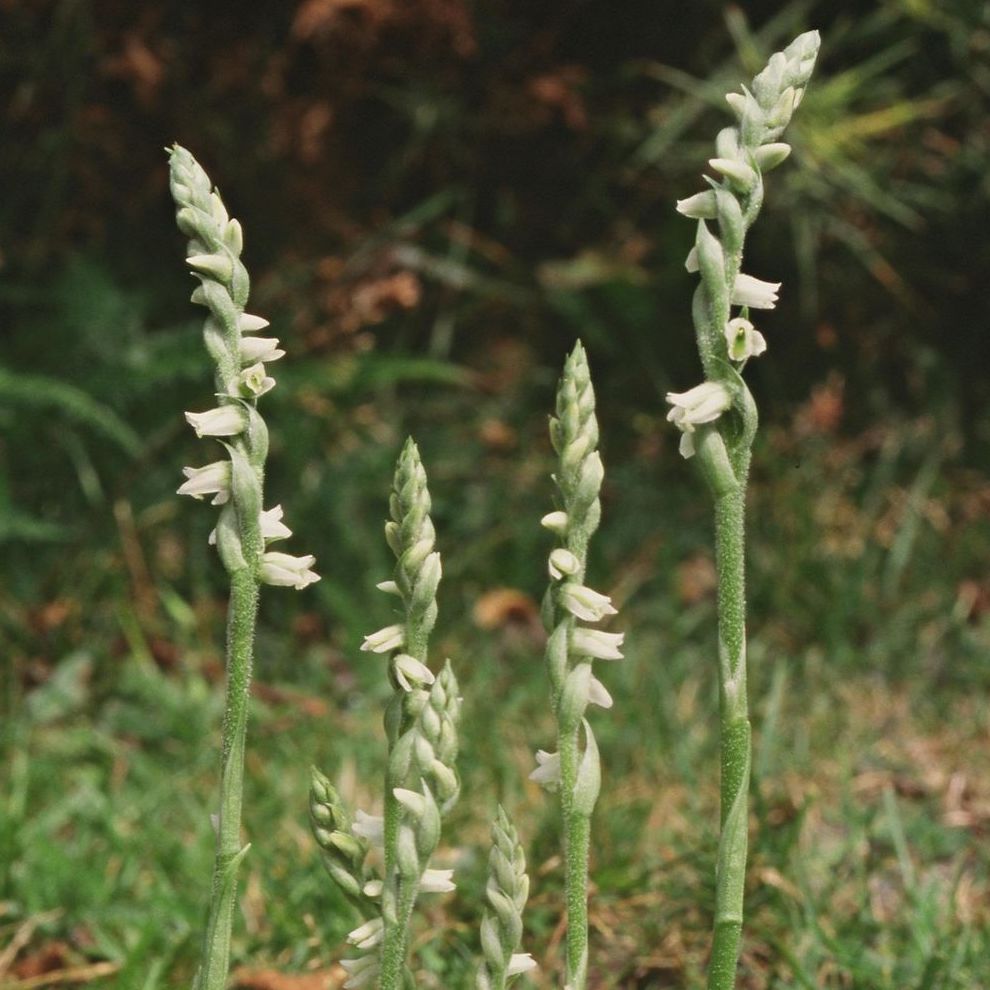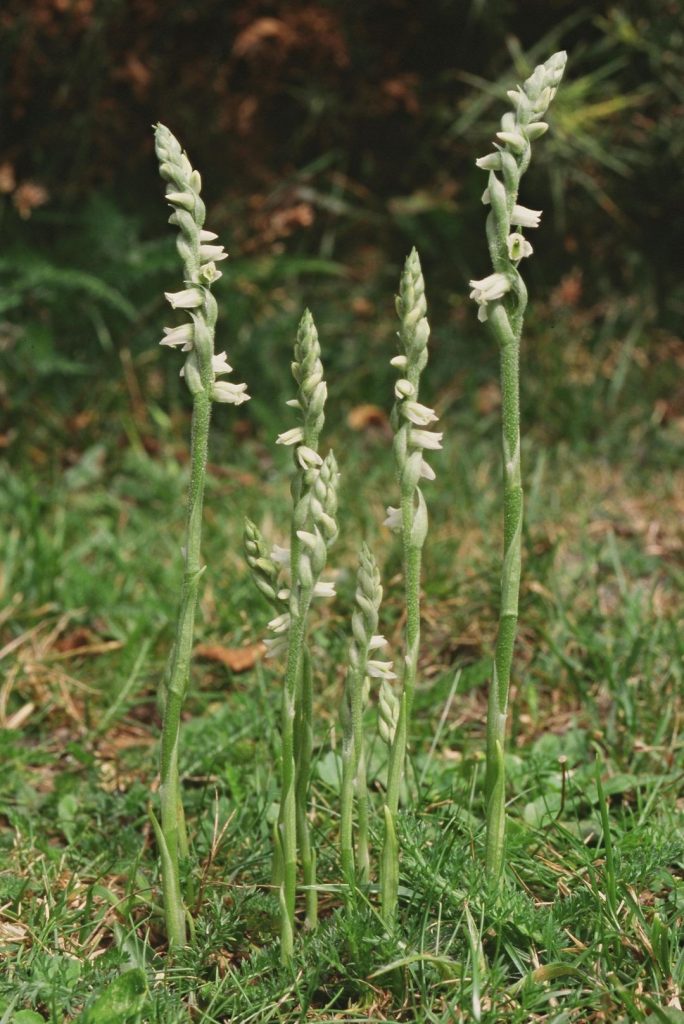
You may be lucky and find the last blooms of this lovely, and relatively rare, member of the orchid family into October.
Photo: © Natural England/Peter Wakely
Scientific name: Spiranthes spirales
Conservation status: Vascular Plant Red Data Book: Near threatened.
What to look for:
• Family: Orchidaceae (Orchid family)
• Flowers: White, small and downy, arranged in spirals on 3 to 10 cm-long spikes. The flowers have a coconut scent.
• Leaves and stem: The leaf rosette of oval grey-green leaves is adjacent to the stem rather than encircling it. Stem leaves cling to the stem like scales.
• Height: 7 to 20 cm tall.
• Where: Dunes and calcareous grasslands. Prefers short grass.
• When: Flowers August to September.
• Habit: Upright.
The pretty spirals of Autumn Lady’s-tresses are a wonderful find as the summer closes. Spending the warmer months in dormancy, the underground tubers produce the flower stem from August into September. This member of the orchid family has a delicate disposition, though, and does not flower every year: it will definitely stay tucked up beneath the earth in harder years.
Autumn Lady’s-tresses has an interesting life cycle. A leaf rosette is produced at the end of August and lasts through the winter and spring before dying back by the end of July. A flower stalk then grows, producing an inflorescence of the coconut-scented, green-throated white blooms, and one or two fresh leaf rosettes.
The plant relies on bees for pollination, and the fine seeds are then wind-dispersed.
Did you know…?
…This is one of the plant species that has declined due to agricultural intensification, with the most drastic losses occurring before the 1930s.

More information and references:
Mabey, R., 1997. Flora Britannica. Chatto & Windus, London.
Rose, F. and O’Reilly, C., 2006. The Wild Flower Key, 2nd edition. Frederick Warne, London.
Stace, C., 2010. New Flora of the British Isles, 3rd edition. Cambridge University Press, Cambridge.
Published: October 2016
Author: Amanda Scott
Photos: © Natural England/Peter Wakely
